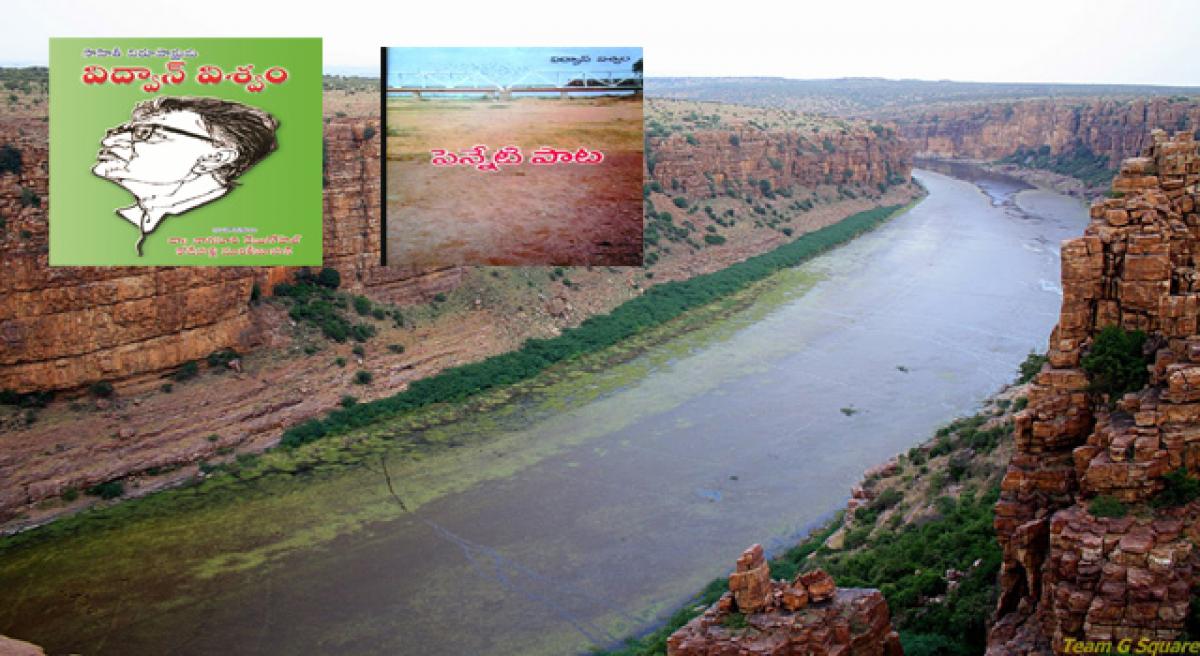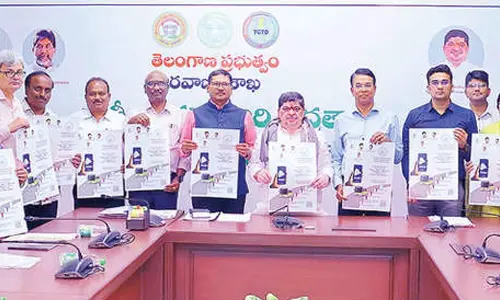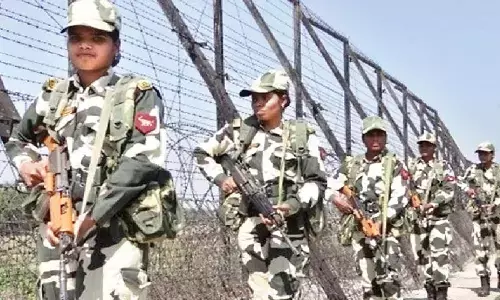A reverberating song of the river

It was an epoch book written by a poet from Rayalaseema, published by The Writers Association of Telangana in 1956, and it was dedicated to a renowned journalist of the coastal region.
It was an epoch book written by a poet from Rayalaseema, published by The Writers Association of Telangana in 1956, and it was dedicated to a renowned journalist of the coastal region.
The name of that book is ‘Pennetipata’, the poet is Vidwan Viswam and it was dedicated to Narla Venkateswara Rao.
In his brief introduction to the book, Dr C Narayana Reddy, the then secretary of The Telangana Writers Association observed that ‘Pennetipata’ reflected the anguish of all Telugu people,
it is a privilege for them to have the opportunity of publishing it and their happiness was doubled as it was dedicated to their dear friend. That was the spirit of Telugu people at the time of the formation of Andhra Pradesh.
Rayalaseema has a great past and the very name itself is derived from Krishnadevaraya, the illustrious king of Vijayanagara. Now the old ruins of Vijayanagara are in the Bellary district of Karnataka, around 100 kms from the border of Ananthapur district.
Rayalaseema was in the lap of thick forests and mountain ranges in the past. With fertile fields and plenty of the herds of cattle and sheep, it was a haven of wealth and happiness.
Rayalaseema is a land of lakes and the rulers of the past took care of them by dredging them regularly. The breakage of the embankments of the lakes were so many that lakes had a presiding rustic deity associated with a myth relating the way that she sacrificed her life by becoming an embankment.
But the free currents of water channels got dried up as many dams were constructed in the upstream. Many rivers were transformed into sand chunks as they ran dry. And consequently many natural springs drained off.
The Nizam of Hyderabad ceded most of the Rayalaseema, the present day districts of Bellary, Kadapa, Ananthapur, parts Davanagere (Harapanahalli taluk), and much of Kurnool to the British India Company in 1800 and then it underwent exploitation and negligence under the British rule.
‘Pennetipata’ reflects the anguish of a poet at the plight of the poor farmers of Rayalaseema. It is an authentic portrayal of the life of the peasants living on the banks of the river Penna.
It is a “kavya” divided into five “sargas”. The first “sarga” describes the setting of the story, the river Penna and the village on the banks of it. The poet begins the verse with an invocation to the past glory of the place. He sings:
“Once there harvested heap of pearls/ once there flourished poetic zeal
Once there rained scholarly commentaries/It was a place of valour and pride.”
Then he laments:
“This is Penna; this is Penna/Stride patiently
Brood over it, dear brother, /it’s merely a desert.
Where is water? Where is the roar? Where is the stream of water?
This is Water. This is the roar and this is the sandy heap…”
Penna is not a live river and its basin lies in the rain shadow of the high Western Ghats ranges, which prevents much moisture from reaching the region. It got itself used to the draughts.
People of the banks of it have to dig deep into the sand that remained in the river during the summer to procure drinking water.
But the people are fond of its waters and they do believe that its taste is matchless and incomparable. Bathing in the Ganges and drinking Penna are equally great according to a local proverb.
Viswam vividly brings out the environmental disaster took place in the modern times. He calls Penna, a river of corpses and a dire desert that has become a haven for wild foxes, poisonous cobras, beastly vultures and thorny bushes.
Rangadu, the protagonist of the story of ‘Pennetipata’, hails from a small village called Chinthala Palli in Ananthapur district. His father, Pathi Narapa Reddy is a benevolent farmer. He gets himself distinguished by his hard work, self-righteousness and people praised him as a man of character.
But his pious nature lands him in debts. He pays his debts by selling his fields and finally becomes a pauper. Thus Rangadu inherited nothing from his father except his body.
He becomes a servant in a farmer’s house and his wife, Gangamma becomes a servant maid elsewhere. They have to strive very hard to earn their daily bread by collecting dry wood in the forest and attending the daily chores in the houses of the farmers.
The wife and husband have tremendous love for each other but they cannot rescue each other from the dreadful drudgery. Their life becomes an ordeal when they beget a son.
The story gets concluded when Arundhati and Prurava, who are in heaven, bewail the plight of Rangadu and Gangamma. The poet questions that who is responsible for their agony.
How long can they sustain those hardships? Then he laments:
“Oh God! Are you there or dead? /Justice, Are you driven out of this earth?
Society, are you suffering from coma? /Heart, you are banished by the man.
The earth is quivering, the mountains are caved/Climbing the peaks and thundering the skies
Let me clamor and keen / that consciousness is dead in this world.”
Although the poem concludes with a lamentation it doesn’t leave the reader in pessimism but prepares him to take up the challenge by being wise, practical and realistic.
Viswam employed metric verse along with free verse in the book. He profusely used many dialectical words of Ananthapur district and provided an appendix of those words with their meanings.
‘Pennetipata’ was written nearly 60 years ago but the water problem of Rayalaseema remains unsolved till now and has intensified. ‘Pennetipata’ is still reckoned as a representative poem of Rayalaseema and Vidwan Viswam is upheld as a pioneer of Rayalaseema literature.









